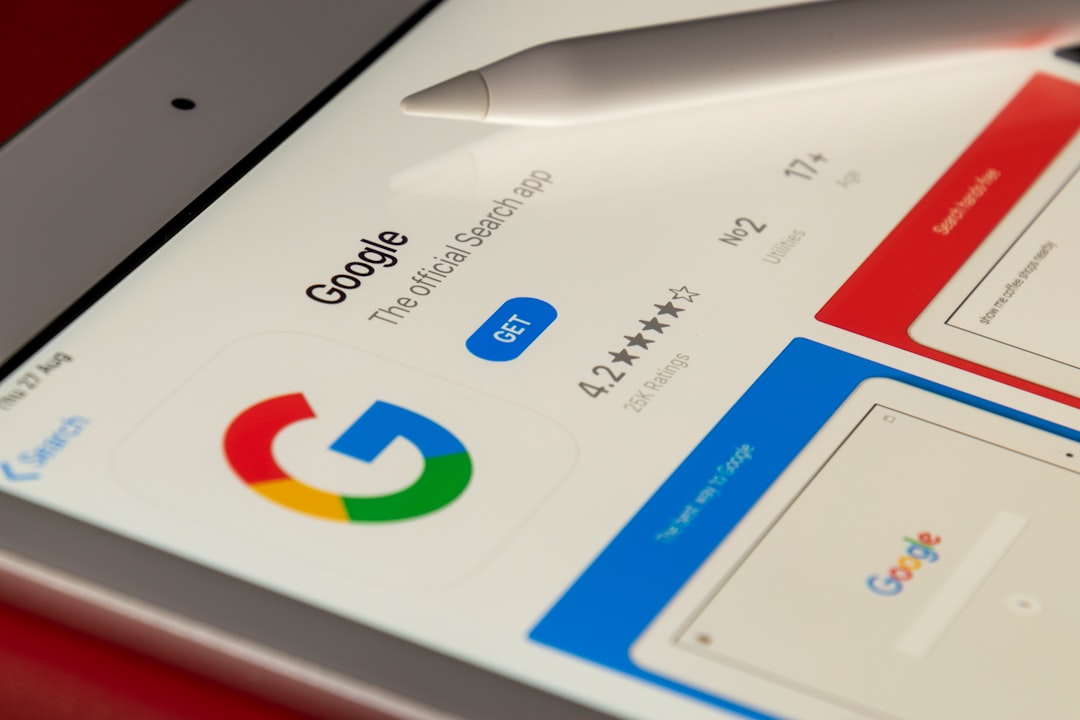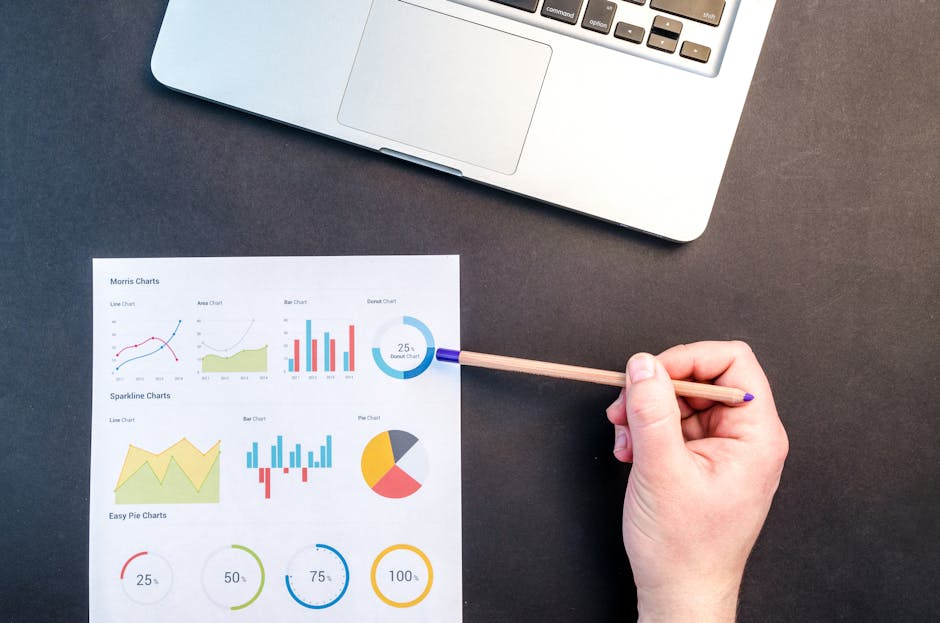The Importance of Off-Page SEO Backlinks
Off-page SEO backlinks are crucial for improving your website’s search engine rankings. Here’s a quick summary:
- Backlinks: Links from other websites that point to your site.
- Search Engine Rankings: Backlinks can significantly boost your place on Google and other search engines.
- Authority: Websites with high-quality backlinks are often seen as more credible and trustworthy.
- Credibility: Strong backlinks enhance your site’s reputation and trustworthiness.
In SEO, there is more to consider beyond just optimizing your website’s content. Off-page SEO is all about actions that happen outside your website, like earning backlinks from other reputable sites. These backlinks serve as endorsements, signaling to search engines that your content is valuable and authoritative.
Google still prioritizes backlinks as a significant ranking factor, thanks to their influence on your site’s perceived authority. Think of off-page SEO as building your website’s credibility in the larger digital community. The more credible your site appears, the higher your chances of ranking well in search results.
I’m Danielle Birriel, founder of D&D SEO Services. With over a decade of experience, I specialize in off-page SEO backlinks to help local businesses thrive online. Join me as we explore the game-changing world of off-page SEO.
What is Off-Page SEO?
Off-page SEO includes activities done off your website to improve its search engine rankings. Think of it as the behind-the-scenes work that builds your site’s reputation and authority.
Why Is Off-Page SEO Important?
Off-page SEO is crucial because it signals to search engines that your site is trustworthy and authoritative. Google and other search engines use these signals to rank your site. The more credible your site appears, the higher your chances of ranking well in search results.
Backlinks are a major part of off-page SEO. They are like votes of confidence from other websites. When a reputable site links to yours, it tells search engines that your content is valuable.
Off-Site SEO
Off-site SEO includes actions like:
- Building backlinks
- Encouraging branded searches
- Increasing social media engagement and shares
These activities happen away from your website but directly impact how search engines perceive your site.
E-E-A-T: Experience, Expertise, Authoritativeness, Trustworthiness
Google uses E-E-A-T to evaluate the quality of content, especially for topics that affect your health, finances, or safety (known as YMYL – Your Money or Your Life).
Experience
Experience shows that you know your stuff. You can showcase experience by:
- Displaying awards and certifications
- Sharing user success stories and testimonials
Expertise
Expertise means having deep knowledge about a topic. Show your expertise by:
- Having qualified authors write your content
- Guest posting on reputable industry websites
Authoritativeness
Authoritativeness is about being a go-to source in your field. You can build authority by:
- Earning high-quality backlinks
- Engaging in industry forums and communities
Trustworthiness
Trustworthiness is about being reliable and honest. Improve trust by:
- Securing your website with HTTPS
- Gathering positive reviews and addressing negative feedback
Real-World Example
A study found that Moz’s keyword research guide earned many backlinks because it cited a specific stat: “long tail keywords make up 70% of all searches.” This stat was so valuable that other sites linked to it, boosting Moz’s authority.
Why E-E-A-T Matters
Google wants to provide users with results they can trust. Pages with high E-E-A-T rank better in search results, which improves your site’s visibility and traffic.
Conclusion
Off-page SEO is all about building your site’s reputation and authority through activities done outside your website. By focusing on E-E-A-T, you can improve your site’s trustworthiness and rank higher in search results.
Next, we’ll dive into the strategies you can use to improve your site’s off-page SEO.
Off-Page SEO vs. On-Page SEO
To understand the full picture of SEO, you need to know the differences between off-page SEO and on-page SEO. Both are crucial for improving your website’s search engine rankings, but they serve different purposes.
On-Page SEO
On-page SEO focuses on optimizing elements within your website. This includes:
- Content: Creating high-quality, relevant content that answers user queries.
- Title Tags and Meta Descriptions: Crafting keyword-optimized titles and meta descriptions to improve click-through rates.
- URLs: Using clean, keyword-rich URLs.
- Headings: Structuring your content with headings (H1, H2, etc.) to improve readability.
- Internal Linking: Linking to other pages on your site to help users and search engines navigate.
- SEO-Optimized Hosting: Ensuring fast load times and reliable uptime.
On-page SEO helps search engines understand the context and purpose of your content. It also enhances user experience by making your site easier to read and navigate.
Off-Page SEO
Off-page SEO involves activities outside your website to boost its visibility and authority. This includes:
- Link Building: Acquiring high-quality backlinks from reputable sources.
- Social Media Marketing: Promoting your content on social platforms to increase shares and mentions.
- Content Marketing: Creating valuable content that attracts links and social shares.
- Influencer Outreach: Collaborating with influencers to promote your content.
- Online Reputation Management: Managing reviews and mentions to build credibility.
- Brand Promotion: Enhancing your brand’s visibility across the web.
Off-page SEO helps establish your website’s authority, reputation, and visibility. Search engines use these external signals to gauge your site’s credibility.
Key Differences
- Control: On-page SEO is entirely within your control. You can directly optimize content, tags, and links. Off-page SEO relies on external factors, like backlinks and social signals, which you can influence but not control.
- Focus: On-page SEO improves your site’s relevance to user queries. Off-page SEO boosts your site’s authority and credibility.
- Impact: On-page SEO helps search engines understand what your page is about and improves user experience. Off-page SEO helps search engines determine how trustworthy and popular your site is.
Why Both Matter
Balancing on-page and off-page SEO is crucial for a successful SEO strategy. Think of them as two sides of the same coin. While on-page SEO ensures your website is optimized for search engines and users, off-page SEO helps establish your website’s authority and reputation across the web.
Using both strategies together can significantly boost your search engine rankings and online visibility.
Next, we’ll dive into the strategies you can use to improve your site’s off-page SEO.
Why Off-Page SEO Matters
Off-page SEO is crucial for your website’s success because it tells search engines that your site is important and trustworthy. Without it, even the best on-page SEO won’t be enough to rank well. Let’s break down why off-page SEO matters.
Search Engines and Ranking Factors
Search engines like Google use complex algorithms to decide which websites should rank higher in search results. While on-page SEO helps search engines understand your content, off-page SEO signals how others view your site. Think of it as a popularity contest. The more positive signals your site gets from other places on the web, the more likely it is to rank higher.
The Role of Backlinks
Backlinks are the backbone of off-page SEO. These are links from other websites pointing to your site. Google sees these as votes of confidence. The more high-quality backlinks you have, the more credible your site appears.
A study found a clear correlation between the number of backlinks and higher Google rankings. Google’s algorithm, including PageRank, still heavily relies on backlinks to measure a site’s authority.
“Links are by far the most important off-page SEO signal,” according to Google’s Quality Rater Guidelines.
Mentions and Social Media
Backlinks aren’t the only off-page SEO signals that matter. Mentions of your brand across the web, whether in online reviews, news articles, or social media, also play a role. Google’s Quality Rater Guidelines refer to this as “Reputation Research.”
For example, positive mentions on authority sites like Wikipedia or major news outlets can boost your site’s credibility. Similarly, being active on social media and engaging with your audience can help increase your online presence and brand mentions.
Real-World Examples
Let’s look at a real-world example. A few years back, I published a comprehensive list of SEO tools. To rank well, I did all the on-page SEO I could, but I knew I needed more. So, I promoted the post on social media and reached out to other websites to build backlinks. This combination of on-page and off-page SEO helped my page rank in the top 3 for my target keyword.
Why It’s Important
In summary, off-page SEO is essential for building your site’s reputation and authority. It helps search engines see your site as trustworthy and valuable, which can significantly boost your rankings. Without it, even the best on-page SEO efforts might fall flat.
Now, let’s dive into the strategies you can use to improve your site’s off-page SEO.
How to Do Off-Page SEO for Your SEO Campaign
Link Building
Link building is one of the most important strategies for off-page SEO. It involves getting other websites to link back to your site, which signals to search engines that your content is valuable and trustworthy.
There are three types of links to focus on:
- Natural Links: These are links you earn without any outreach. For example, someone finds your content useful and links to it naturally.
- Built Links: These come from your proactive efforts, like reaching out to webmasters or journalists. This can include guest posting or digital PR.
- Created Links: These are self-submitted links, like those you might add to directories or forums. Be cautious, as search engines often view these as low-quality.
Here are some effective link-building strategies:
- Join an Association: Being part of industry associations or local Chambers of Commerce can earn you valuable backlinks.
- Outreach: Reach out to journalists and bloggers to feature your content. This can help you earn high-quality links.
- Broken Link Building: Find broken links on other websites and suggest your content as a replacement.
- Social Media: Share your content on social media platforms. This can help it gain traction and earn natural links.
Content Marketing
Creating high-quality content is another crucial off-page SEO tactic. Good content attracts natural links and showcases your expertise. Here are some content marketing strategies:
- Guest Posting: Write articles for other reputable websites. This not only helps you reach new audiences but also earns backlinks.
- Social Media Marketing: While social media doesn’t directly affect rankings, it increases your content’s visibility and can lead to more backlinks.
- Influencer Marketing: Collaborate with influencers to share your content. This can drive traffic and increase your reach.
- Digital PR: Build relationships with journalists and become a reliable source for them. This can earn you high-quality backlinks.
- Repurposing Content: Turn your content into different formats, like infographics or videos, to reach a broader audience.
Social Bookmarking
Social bookmarking involves submitting your content to sites like StumbleUpon, Tumblr, and Reddit. These platforms segment content into niches, making it easier to reach your target audience.
Pro Tip: Research the audience and rules of each site before submitting content. You want to add value, not spam the community.
Earning Reviews Online
Reviews are crucial for building trust and improving your site’s reputation. Here’s how to earn more reviews:
- Google Business Profile: Make sure your profile is complete and up-to-date. Respond to all reviews to show you value customer feedback.
- Ask for Reviews: Politely ask satisfied customers to leave a review. Make it easy by providing direct links.
- Customer Feedback: Use feedback to improve your services and build trust with potential customers.
By focusing on these off-page SEO strategies, you can significantly improve your site’s authority and rankings, leading to more organic traffic.
Next, let’s explore the different types of off-page SEO backlinks.
Types of Off-Page SEO Backlinks
Understanding the different types of off-page SEO backlinks is crucial. Not all backlinks are created equal, and knowing the distinctions can help you build a stronger SEO strategy. Let’s break it down.
Natural Links
Natural links are the gold standard of backlinks. These are links that you earn without any direct effort. Someone finds your content valuable and decides to link to it. For example, a travel blogger might link to your travel agency’s survey results because they find it insightful.
Why they matter: Natural links are a strong signal to search engines that your content is valuable and trustworthy. They carry a lot of weight in boosting your search rankings.
Built Links
Built links come from proactive efforts. This includes reaching out to webmasters, publishers, or journalists to get them to link to your content. For instance, you might contact a local news site to feature your latest project or study.
Why they matter: Built links can be highly authoritative, especially if they come from reputable sources. They help you gain visibility and credibility in your niche.
Created Links
Created links are those you generate yourself, like submitting your site to directories, posting in forums, or issuing press releases. While these can be useful, they are often seen as less valuable by search engines.
Why they matter: Created links can still drive traffic and provide some SEO benefits. However, over-reliance on them can be seen as a black-hat SEO tactic, which search engines frown upon.
Link Equity
Not all links are equal. Link equity refers to the value or authority that a backlink passes to your site. Factors influencing link equity include:
- Anchor Text: The clickable text in a hyperlink. Relevant and keyword-rich anchor text can boost your rankings.
- Freshness: Newer links often carry more weight than older ones.
- Number of Links: Pages with fewer outbound links can pass more equity to your site.
- Relevance: Links from sites related to your industry are more valuable.
- Trustworthiness: Links from reputable sites carry more weight.
- Authority: Links from high-authority sites (like news sites or educational institutions) are more powerful.
Authority
Authority is a measure of how trustworthy and influential a site is. High-authority sites are those that search engines see as reliable sources of information. Getting backlinks from these sites can significantly boost your SEO.
Why it matters: The more authoritative the linking site, the more valuable the backlink. For example, a link from a well-known industry publication can do wonders for your site’s credibility and rankings.
By understanding the different types of backlinks and focusing on building high-quality, authoritative links, you can improve your off-page SEO and see better results in search engine rankings.
Next, let’s look at some common off-page SEO techniques to help you get started.
Factors Influencing Link Value
When it comes to off-page SEO backlinks, not all links are created equal. The value of a backlink depends on several factors that search engines consider when determining how much “link equity” or authority to pass to your site. Let’s break down the six key factors that influence link value:
Anchor Text
Anchor text is the clickable text in a hyperlink. It provides context about the linked page. Search engines use anchor text as a ranking signal. For instance, if many sites link to your page using the anchor text “best rain boots,” search engines will understand that your page is relevant to that term.
Tip: Use a mix of exact match, phrase match, and generic anchor texts to avoid appearing spammy. Aim for 30% exact match, 30% phrase match, and 30% generic, with the remaining 10% as the URL itself.
Freshness
The freshness or age of a link can also impact its value. Newer links can provide a temporary boost, but older, established links tend to offer more long-term value.
Fact: Search engines like Google appreciate a steady stream of new links over time rather than a sudden spike, which could seem unnatural.
Number of Links
The number of links on the linking page matters too. If a page has too many outbound links, the value passed to your site may be diluted. Conversely, fewer links mean more link equity for each link.
Example: A backlink from a page with only a few other outbound links is generally more valuable than one from a page with dozens of links.
Relevance
Relevance between the linking site’s subject matter and yours is crucial. A link from a site in your industry or niche is more valuable than a link from an unrelated site.
Case Study: If you run a fitness blog, a backlink from a reputable health and wellness site will carry more weight than one from a general news site.
Trustworthiness
The trustworthiness of the linking site is another critical factor. Sites that are considered authoritative and trustworthy by search engines pass more link equity.
Tip: Aim for backlinks from sites with high domain authority and a low spam score. Tools like Ahrefs and Semrush can help you assess the potential link value of a site.
Authority
Lastly, the authority of both the linking site and the specific linking page is paramount. A link from a high-authority site can significantly boost your rankings.
Statistic: According to research, sites with a high Domain Authority (DA) score, like those above 60, provide more valuable backlinks. For example, a link from a site like HomesandGardens.com, with a DA of 60 and over 17k links from other domains, is highly beneficial.
Understanding these factors can help you focus your link-building efforts more effectively. Next, we’ll explore some common off-page SEO techniques to help you get started.
Common Off-Page SEO Techniques
When it comes to off-page SEO, there are several techniques you can use to build your website’s authority and improve its search engine rankings. Let’s dive into some of the most effective methods:
Link Building
Link building is the backbone of off-page SEO. It involves getting other websites to link to your site. These links, known as backlinks, act like votes of confidence from other sites, signaling to search engines that your content is valuable and trustworthy.
Types of Link Building:
- Natural Links: These links are earned without any direct action from you. For example, a blogger might link to your content because they found it useful.
- Built Links: These are acquired through deliberate actions, such as reaching out to webmasters and asking for a link.
- Created Links: These links are manually added by you, like submitting your site to directories or leaving comments on blogs.
Pro Tip: Focus on getting dofollow backlinks from high-authority sites. These links pass on “link juice” and improve your site’s authority.
Guest Posting
Guest posting involves writing articles for other websites in your industry. This technique not only helps you reach a new audience but also allows you to earn quality backlinks.
Steps to Effective Guest Posting:
- Identify Target Blogs: Look for blogs that accept guest posts and have a high Domain Authority (DA).
- Pitch Your Idea: Send a well-crafted pitch that outlines your proposed topic and why it would be valuable to their audience.
- Write Quality Content: Ensure your guest post is informative and engaging. Include a link back to your site in the author bio or within the content if allowed.
Example: A roofing company might write a guest post about “5 Tips for Maintaining Your Roof in Winter” for a home improvement blog.
Social Media Marketing
Social media marketing is a powerful tool for off-page SEO. Sharing your content on platforms like LinkedIn, Facebook, and Twitter can drive traffic to your site and increase its visibility.
Benefits of Social Media Marketing:
- High Domain Authority: Social media sites have high DA, making them valuable for backlinks.
- Increased Reach: Your content can reach a broader audience, leading to more shares and potential backlinks.
Pro Tip: Make sure your social media profiles are complete and reflect your brand positively. Engage with your audience by responding to comments and messages.
Influencer Outreach
Influencer outreach involves partnering with influencers in your niche to promote your content. Influencers have a large following and can help you gain visibility and credibility.
How to Leverage Influencer Outreach:
- Identify Influencers: Look for influencers who align with your brand values and have a significant following.
- Engage with Them: Start by engaging with their content. Like, comment, and share their posts.
- Propose Collaboration: Reach out with a proposal for collaboration, such as a review of your product or a quote for your article.
Example: A roofing company might collaborate with a home improvement influencer to review their services and share it with their followers.
Broken Link Building
Broken link building is a technique where you find broken links on other websites and suggest your content as a replacement.
Steps to Implement Broken Link Building:
- Find Broken Links: Use tools like Ahrefs or SEMrush to find broken links on high-authority sites.
- Create Relevant Content: Ensure you have content that matches or exceeds the quality of the broken link’s original content.
- Reach Out: Contact the webmaster, inform them about the broken link, and suggest your content as a replacement.
Pro Tip: This technique not only helps you earn backlinks but also provides value to the website owner by helping them fix broken links.
These off-page SEO techniques can significantly boost your website’s authority and search engine rankings. Focus on building quality backlinks, engaging with your audience on social media, and leveraging influencer relationships to maximize your SEO efforts. Next, we’ll answer some frequently asked questions about off-page SEO backlinks.
Frequently Asked Questions about Off-Page SEO Backlinks
Is off-page SEO still effective for SEO?
Absolutely! Off-page SEO is still a crucial part of a successful SEO strategy. Backlinks and other off-site signals form the foundation of search engine algorithms. For example, a 2020 search engine ranking factors study found a clear correlation between total backlinks and Google rankings. Google’s PageRank, which relies heavily on backlinks, is still a key factor in determining search engine rankings.
Are backlinks part of on-page SEO?
No, backlinks are not part of on-page SEO. On-page SEO involves optimizing elements within your website, such as content, title tags, and internal links. Off-page SEO, on the other hand, includes activities done outside of your website, like building backlinks, social media engagement, and brand mentions. Both are essential but serve different purposes in improving your site’s search engine rankings.
What is the difference between link building and off-page SEO?
Link building is a subset of off-page SEO. It specifically refers to the process of acquiring backlinks from other websites to your own. Off-page SEO encompasses a broader range of activities, including social media marketing, guest posting, influencer outreach, and online reviews, in addition to link building. While link building is a key component, off-page SEO involves any effort made outside your website to improve its search engine rankings and authority.
Next, we’ll explore the different types of off-page SEO backlinks and how they contribute to your website’s authority and search engine rankings.
Conclusion
At D&D SEO Services, we understand the importance of off-page SEO backlinks for your business. Our personalized strategies are designed to enhance your online presence and visibility, especially in local markets.
By focusing on tailored local SEO techniques, we ensure your business stands out in your community. Our approach includes managing your Google Business Profile, securing consistent NAP citations, and earning positive reviews. These methods help to build trust and authority, driving more traffic to your site.
Our goal is to foster growth and sustained customer relationships. With over a decade of experience, we are a trusted partner in the competitive landscape of local search.
Ready to elevate your business? Learn more about our local SEO services.
Next, we’ll explore the different types of off-page SEO backlinks and how they contribute to your website’s authority and search engine rankings.








